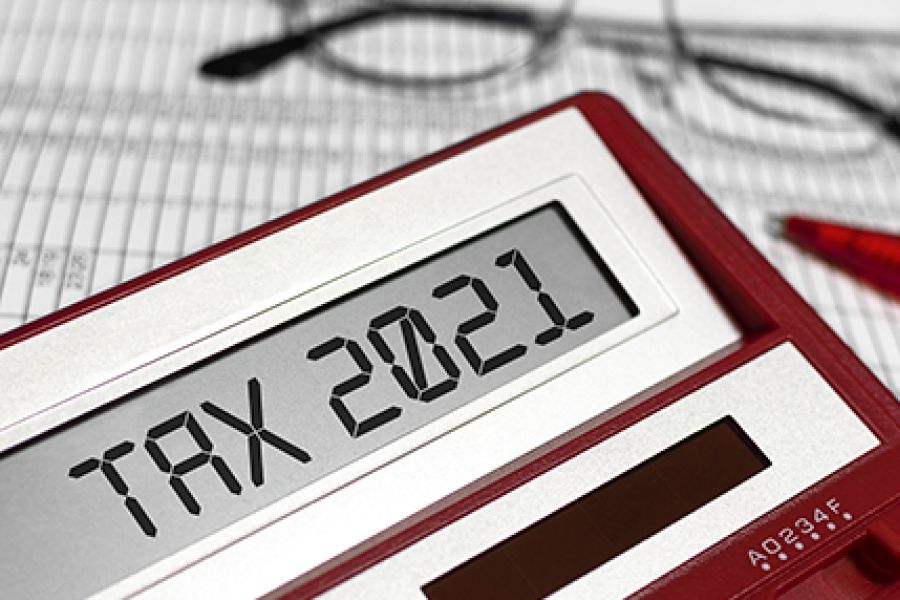In the midst of holiday parties and shopping for gifts, don’t forget to consider steps to cut the 2023 tax liability for your business. You still have time to take advantage of a few opportunities. Time deductions and income If your business operates on a cash basis, you can significantly affect your amount of taxable income by accelerating your deductions into 2023 and deferring income into 2024 (assuming you expect to be taxed at the same or a lower rate next year). For example, you could put recurring expenses normally paid early in the year on your credit card before January 1 — that way, you can claim the deduction for 2023 even though you don’t pay the credit card bill until 2024. In certain circumstances, you also can...

Now that fall is officially here, it’s a good time to start taking steps that may lower your tax bill for this year and next. One of the first planning steps is to ascertain whether you’ll take the standard deduction or itemize deductions for 2022. Many taxpayers won’t itemize because of the high 2022 standard deduction amounts ($25,900 for joint filers, $12,950 for singles and married couples filing separately and $19,400 for heads of household). Also, many itemized deductions have been reduced or abolished under current law. If you do itemize, you can deduct medical expenses that exceed 7.5% of adjusted gross income (AGI), state and local taxes up to $10,000, charitable contributions, and mortgage interest on a restricted amount of debt, but these deductions won’t save...
Now that Labor Day has passed, it’s a good time to think about making moves that may help lower your small business taxes for this year and next. The standard year-end approach of deferring income and accelerating deductions to minimize taxes will likely produce the best results for most businesses, as will bunching deductible expenses into this year or next to maximize their tax value. If you expect to be in a higher tax bracket next year, opposite strategies may produce better results. For example, you could pull income into 2022 to be taxed at lower rates, and defer deductible expenses until 2023, when they can be claimed to offset higher-taxed income. Here are some other ideas that may help you save tax dollars if you act...
If you’re starting to worry about your 2021 tax bill, there’s good news — you may still have time to reduce your liability. Here are three quick strategies that may help you trim your taxes before year-end. 1. Accelerate deductions/defer income. Certain tax deductions are claimed for the year of payment, such as the mortgage interest deduction. So, if you make your January 2022 payment in December, you can deduct the interest portion on your 2021 tax return (assuming you itemize). Pushing income into the new year also will reduce your taxable income. If you’re expecting a bonus at work, for example, and you don’t want the income this year, ask if your employer can hold off on paying it until January. If you’re self-employed, you can...
Don’t let the holiday rush keep you from considering some important steps to reduce your 2021 tax liability. You still have time to execute a few strategies. Purchase assets Thinking about buying new or used equipment, machinery or office equipment in the new year? Buy them and place them in service by December 31, and you can deduct 100% of the cost as bonus depreciation. Contact us for details on the 100% bonus depreciation break and exactly what types of assets qualify. Bonus depreciation is also available for certain building improvements. Before the 2017 Tax Cuts and Jobs Act (TCJA), bonus depreciation was available for two types of real property: land improvements other than buildings (for example fencing and parking lots), and “qualified improvement property,” a broad category of...
With the dawn of 2019 on Tuesday, here’s a quick list of tax and financial to-dos you should address before 2018 ends: Check your FSA balance If you have a Flexible Spending Account (FSA) for health care expenses, you need to incur qualifying expenses by December 31 to use up these funds or you’ll potentially lose them. (Some plans allow you to carry over up to $500 to the following year or give you a 2½-month grace period to incur qualifying expenses.) Use expiring FSA funds to pay for eyeglasses, dental work or eligible drugs or health products. Max out tax-advantaged savings Reduce your 2018 income by contributing to traditional IRAs, employer-sponsored retirement plans or Health Savings Accounts to the extent you’re eligible. (Certain vehicles, including traditional and SEP...








